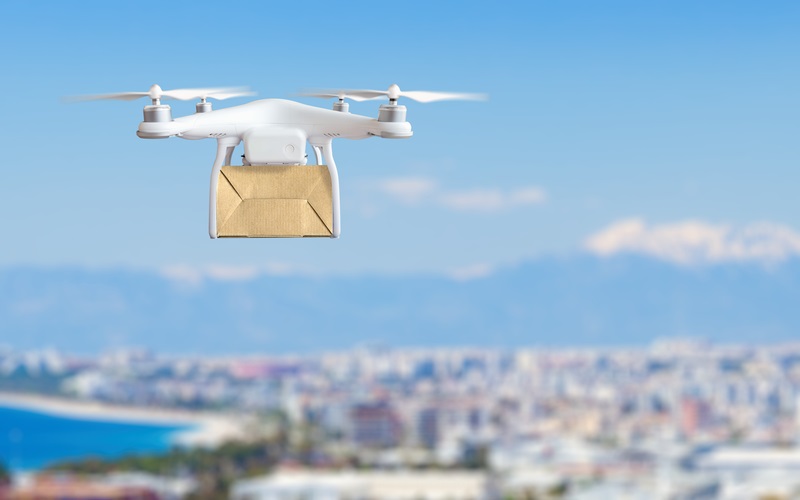
Photo: Ig0rzh | Dreamstime.com
Report highlights the role of cities and emerging tech in supply chain resilience
12 May 2022
by Sarah Wray
Technologies such as sensors, drones, autonomous vehicles and artificial intelligence (AI) forecasting could reduce vulnerabilities in Melbourne’s supply chain that were highlighted during the pandemic, according to a new report.
Towards just and resilient supply chains for the digital CBD – published by RMIT University – also sees a role for blockchain and non-fungible tokens (NFTs).
The publication is part of a project across RMIT’s Blockchain Innovation Hub, Centre for Cyber Security Research and Innovation, and Digital Ethnography Research Centre to understand the impact of the pandemic and digital change on Melbourne’s Central Business District.
Associate Professor Chris Berg, RMIT Blockchain Innovation Hub Co-Director, said: “The pandemic has shown us that supply chains matter, and both policy actors and scholars need to bring the complex supply chain networks into their understanding of the economy.”
The report recommends actions in Melbourne such as creating a testbed for autonomous vehicles and developing a blockchain pilot.
Supply chain vulnerabilities identified during the pandemic include workforce shortages, transport disruptions, lack of information across the whole supply chain network, and increased cybersecurity breaches and threats.
“When cities are disrupted, supply chains also get disrupted and vice versa,” the report says.
“Melbourne needs resilient supply chains that respond to shocks and threats with the ability to adapt to changing conditions,” commented report co-author Dr Tharuka Rupasinghe, from RMIT’s Blockchain Innovation Hub.
Automation
The authors see a key role for autonomous vehicles, robotics and drones in bolstering resilience. They call for Victoria to consider developing policies and shared infrastructure and putting in place incentives to trial the technology within Melbourne, positioning the city as a leader in autonomous last mile-delivery.
The report also claims that in combination with other emerging technologies, blockchain “has a myriad of benefits and can create more efficient, effective and resilient supply chains.”
For example, it could provide end-to-end visibility throughout the food supply chain.
The researchers recommend that the Victorian Government create a blockchain-based supply chain pilot, highlighting construction as an industry that could most benefit from the trial.
Other recommendations in the report include the use of NFTs as digital twins to mitigate against fraud, theft and loss, creating a supply chain data governance framework, and standardising supply chain cybersecurity requirements.
Berg said: “At first glance, a single city might be a strange framework to think about supply chains when we associate supply chains with large scale global networks rather than the urban and suburban environments of a city.
“But as this report shows, the city is shaped by supply chains both large and small. As economic activity shifts, as it did during the pandemic, so too supply chains are restructured around the new demands and environments.”
The report is the third in a five-part series commissioned by the Victorian Higher Education State Investment Fund (VHESIF).
Image: | Dreamstime.com










